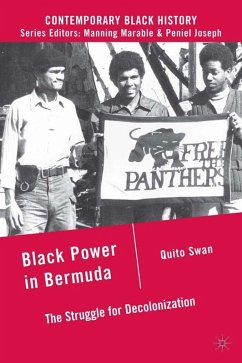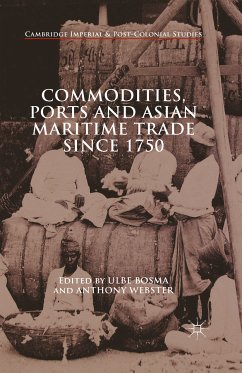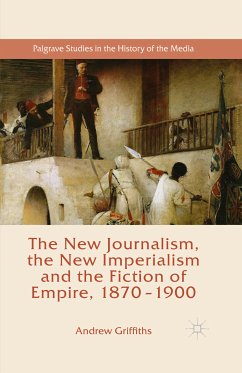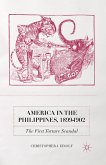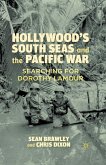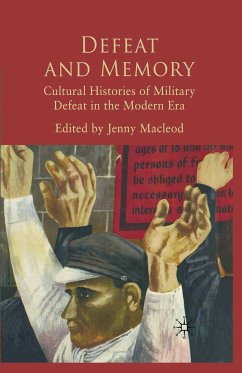Dieser Download kann aus rechtlichen Gründen nur mit Rechnungsadresse in A, B, BG, CY, CZ, D, DK, EW, E, FIN, F, GR, HR, H, IRL, I, LT, L, LR, M, NL, PL, P, R, S, SLO, SK ausgeliefert werden.
"Black Power in Bermuda is a concise and scholarly discussion of the struggle for civil rights, Black nationalism, and political independence evolving in Bermuda during the mid to late twentieth century. Dr. Swan grounds his analysis in the historical context for rights that was pursued by blacks in Bermuda before this period and he demonstrates the interconnectedness between these local political movements and the larger, global, anti-colonialism of the period. Bermuda, he demonstrates, was part them: as influential contributor, as receiver of influence. Dr. Swan s narrative, strongly reflective of classic historiographic method, adeptly utilizing considerable primary and secondary source material, provides an important and powerful voice to the discourse on Bermuda s political history, and is destined to become a classic in the field." - Clarence V.H. Maxwell, Assistant Professor, Latin American and Caribbean History, Millersville University

